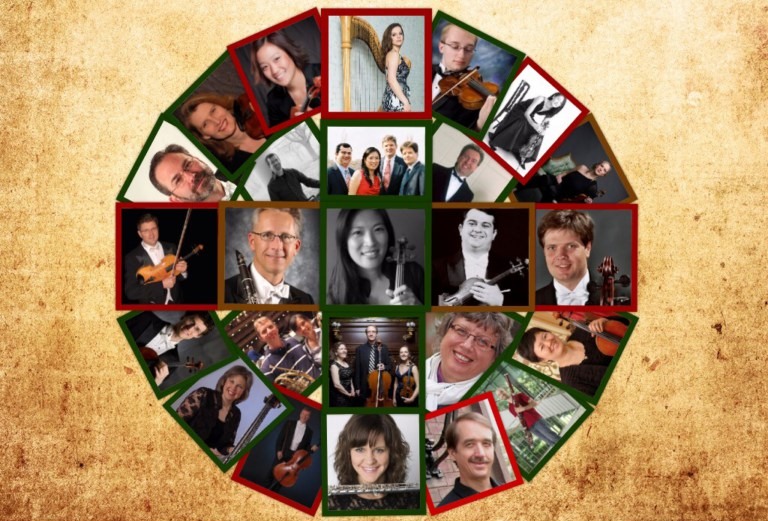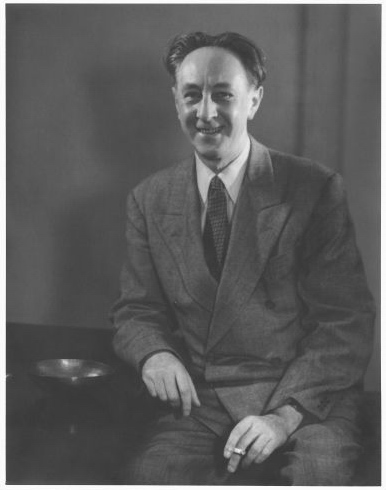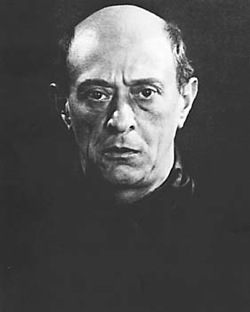Music For the Child in All of Us
Milwaukee Musaik does charming works by Debussy, Schumann, Martinu and Schoenberg.
Milwaukee Musaik closes its season Monday evening at the Wisconsin Conservatory of Music with a concert for the child in all of us: “Kindermusaik, and the kitchen sink!” A mixed ensemble of mostly Milwaukee Symphony Orchestra players, the group was created to provide a chamber music outlet for performers. And for audiences, the uncommon mix of instruments at these concerts introduces music rarely heard in any other Milwaukee venue.
For this concert, the players are Jeanyi Kim and Alexander Mandl, violins; Nathan Hackett, viola; Scott Tisdel, cello; Heather Yarmel, flute; Bill Helmers, clarinet; Rudi Heinrich, bassoon; Matt Ernst, trumpet; Kelsey Molinari, harp; and Stefanie Jacob, piano.
Claude Debussy wrote Children’s Corner for his then five-year-old daughter. Debussy had mastered the art of evocative impressionist portraits in music by that time. These five pieces draw inspiration from his daughter’s playroom. Not child’s play to perform, the musical images of a toy elephant, a dancing snowstorm, a shepherd’s reed pipes, a black face puppet and a child’s piano exercises are clearly captured. His composition for piano solo was soon arranged for flute, cello and harp by Carlos Salzedo. This combination makes the images all the more delightful.
Robert Schumann explored music that brings to mind animated fantasies in this work in four sections, Marchenerzahlungen (Fairy Tales, Op. 132). The lively musical development suggests a theatrical work, but Schumann had no story line in mind. Written for a trio, the timbre of clarinet and viola match each other well as they offer “dialogue,” with a piano adding drama to mix. The mood ranges from dreamy to lyrical to majestic, incorporating in music the mood swings Schumann encountered late in life, possibly a bipolar condition.
The prolific Bohuslav Martinu absorbed styles from many others during his formative years in Paris in the 1920s. Ballet had developed far beyond Swan Lake. Anthropomorphic, surrealistic stories were commonplace; meant to charm a jaded audience. A Czech ballet entrepreneur, Jarmila Kroscholova, suggested a kitchen scenario featuring a love story between the pot and the lid, with bouts of jealousy involving the whisk, dishcloth and others. The ballet quickly faded, but La Revue de Cuisine survived as a spirited suite for sextet. The work succeeds because Martinu was able to incorporate popular styles of the time, including a tango (with a Bolero parody), Charleston and a playful march.
For this performance, Milwaukee Musaik will revisit the ballet score. Meaghan Heinrich will offer brief narrative interjections to match the fantasy plot to the lively music. No one will dance, however.
The concert will conclude with Arnold Schoenberg. Not withstanding his reputation as a dour, dogmatic advocate of harsh 12-tone serial music, Schoenberg did lighter works, including arranging a number of Johann Strauss II‘s works. His arrangement of Emperor Waltz remains true to the original. Strauss did not write a waltz, but an entire stage set from first waltz to full dress Viennese ball.
Schoenberg wrote a reduction of the orchestra version, adapted for septet. Pragmatically, he prepared the work to be played by the same instruments assigned to his best-known avant garde works, Pierrot Lunaire. The piano covers percussion and adds drama. Other individual instruments (string quartet, flute and clarinet) are free to play more transparently in a carefully balanced production. In his program notes, Mandl suggests, “If you feel the urge to dance, go ahead.”
Milwaukee Musaik’s playful selection seems ideal for a pleasant spring evening and a creative mix of instrumental voices. The intimate chamber setting reintroduces us to performers we most often hear buried within the orchestral sounds at the Marcus Center.
The concert begins at 7:00 p.m. on Monday, May 21 at the Wisconsin Conservatory of Music on 1584 N. Prospect Ave. $25 tickets for the concert may be purchased online. $10 student tickets are available at the door. A child may bring an adult for free with the purchase of one ticket. (Actually, the offer works the other way around.) Free evening parking is available at Milwaukee Eye Care, 1684 N. Prospect Ave. (at Brady St).
Preview
-
A Sacred Choir, 70 Voices Strong
 Dec 14th, 2025 by Martha Brown
Dec 14th, 2025 by Martha Brown
-
Prometheus Trio Goes Bohemian
 Dec 3rd, 2025 by Martha Brown
Dec 3rd, 2025 by Martha Brown
-
Present Music Offers New Choral Works
 Nov 20th, 2025 by Michael Barndt
Nov 20th, 2025 by Michael Barndt























